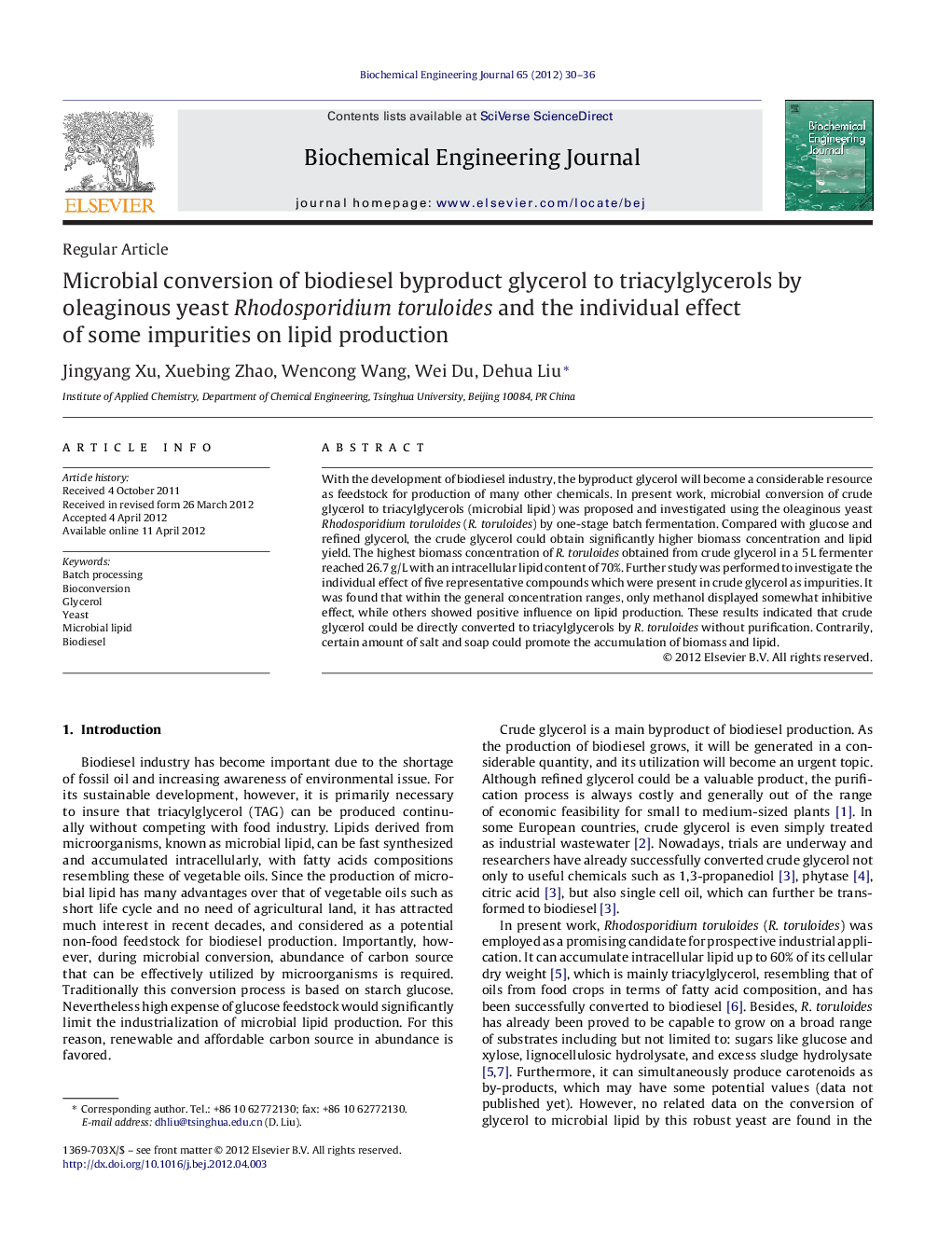| Article ID | Journal | Published Year | Pages | File Type |
|---|---|---|---|---|
| 3564 | Biochemical Engineering Journal | 2012 | 7 Pages |
With the development of biodiesel industry, the byproduct glycerol will become a considerable resource as feedstock for production of many other chemicals. In present work, microbial conversion of crude glycerol to triacylglycerols (microbial lipid) was proposed and investigated using the oleaginous yeast Rhodosporidium toruloides (R. toruloides) by one-stage batch fermentation. Compared with glucose and refined glycerol, the crude glycerol could obtain significantly higher biomass concentration and lipid yield. The highest biomass concentration of R. toruloides obtained from crude glycerol in a 5 L fermenter reached 26.7 g/L with an intracellular lipid content of 70%. Further study was performed to investigate the individual effect of five representative compounds which were present in crude glycerol as impurities. It was found that within the general concentration ranges, only methanol displayed somewhat inhibitive effect, while others showed positive influence on lipid production. These results indicated that crude glycerol could be directly converted to triacylglycerols by R. toruloides without purification. Contrarily, certain amount of salt and soap could promote the accumulation of biomass and lipid.
► Crude glycerol from biodiesel industry as carbon source for microbial lipid production. ► Rhodosporidium toruloides could well convert crude glycerol to triacylglycerols. ► The impurities of the crude glycerol exerted positive effects on lipid production.
